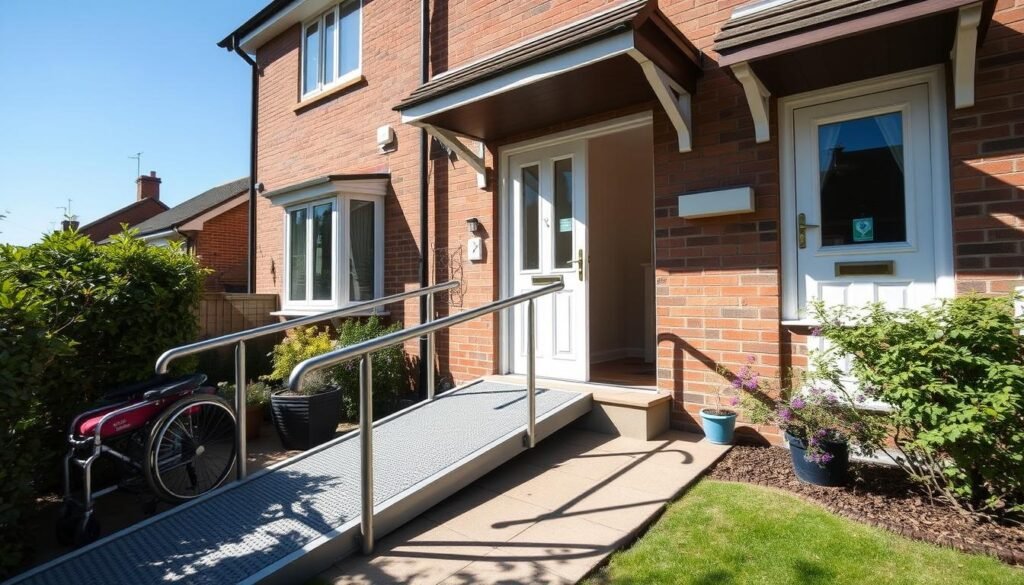Internet installation in rental properties
Key Takeaways
- Tenants typically need landlord permission for internet installations requiring property alterations.
- Openreach and Virgin Media have specific guidelines for installations in rental properties.
- Clear communication between tenants, landlords, and service providers is crucial.
- Landlords should consider the long-term benefits of allowing internet installations.
- Both parties should be aware of their rights and responsibilities regarding property alterations and internet access.
As a UK landlord, you might find yourself wondering: “Do tenants need my permission to install internet?” In today’s digital world, where internet access is as essential as electricity, this question is more relevant than ever. This comprehensive guide will help you navigate the complexities of internet installation in rental properties, with specific insights from major providers like Openreach and Virgin Media.
1. The legal landscape: Understanding your rights as a landlord
When it comes to internet installation, it’s crucial to understand the legal framework governing landlord-tenant relationships in the UK. The Landlord and Tenant Act 1985 outlines basic rights and responsibilities, but doesn’t specifically address internet installation.
Generally, tenants need permission for property alterations, including those for internet installation. This is because installations often involve drilling holes, laying cables, or attaching equipment to the building’s exterior. As a landlord, you have the right to know about and approve such changes.
However, denying reasonable requests without good cause could potentially interfere with the tenant’s right to quiet enjoyment. It’s a delicate balance that requires careful consideration.
2. Types of internet installations: What you need to know
Different internet installations have varying impacts on your property. Understanding these can help you make informed decisions when tenants approach you with requests.
Broadband internet
This common type typically involves a landline connection and may require installing a new phone socket. Openreach, which manages much of the UK’s broadband infrastructure, has specific guidelines for installations in rental properties.
Fibre optic internet
Fibre installations can be more complex, potentially involving digging up gardens or drilling holes for cables. Openreach’s Full Fibre service, for instance, requires bringing a fibre cable directly into the property.
Cable internet
Providers like Virgin Media use their own cable network. Installation might involve laying new cables to the property, which could require more extensive work.

3. Openreach and Virgin Media: Specific guidance for landlords
Both Openreach and Virgin Media have procedures in place for installations in rental properties, recognising the need to involve landlords in the process.
Openreach guidance
Openreach typically requires landlord permission for new installations. They provide a Landlord’s consent form which needs to be completed before work can begin. This form outlines the proposed work and seeks your approval.
For their Full Fibre service, Openreach may need to install new equipment both outside and inside the property. They stress the importance of landlord cooperation in enabling these installations, highlighting the long-term benefits of improved connectivity.
Virgin Media guidance
Virgin Media also requires landlord permission for new installations. They provide a Wayleave agreement which outlines the terms under which they can install and maintain their equipment on your property.
Virgin Media emphasises the minimal disruption caused by their installations and the potential increase in property value that high-speed internet can bring.

4. The benefits of allowing internet installation
While it’s your prerogative to approve or deny installation requests, there are compelling reasons to consider allowing them.
Firstly, properties with good internet connectivity are highly desirable to tenants. Many people work from home or rely heavily on the internet for entertainment and communication. By allowing installation, you’re making your property more attractive to a wider pool of potential tenants.
Secondly, satisfied tenants are more likely to stay long-term, reducing turnover costs. It’s a win-win: your tenants get the connectivity they need, and you get stable, happy tenants.
Lastly, internet installations can add value to your property. For example, Openreach’s Full Fibre or Virgin Media’s cable service could be selling points for future tenants or even increase the property’s market value.
[Collection embed: Benefits of High-Speed Internet for Properties]
5. Communication is key: Handling tenant requests
When a tenant approaches you with an installation request, clear communication is crucial. Here are some steps to ensure a smooth process:
- Ask for details: Request specifics about the installation process. What type of internet? What alterations are necessary?
- Get it in writing: If you allow the installation, document your agreement in writing, perhaps as an addendum to the tenancy agreement.
- Specify conditions: Set conditions for the installation. For example, require that any holes drilled be filled and painted over when the tenant moves out.
Remember, fostering good communication can lead to a more positive landlord-tenant relationship overall.
[Collection embed: Effective Landlord-Tenant Communication]
6. Potential pitfalls: What could go wrong?
While allowing internet installation has many benefits, it’s important to be aware of potential issues.
One concern is property damage during installation. While professional installers are generally careful, accidents can happen. Holes might be drilled incorrectly, or cables could damage landscaping.
Another issue is equipment removal when a tenant moves out. If dishes or external cables are left behind, who’s responsible for removal? Address these questions upfront in your agreement with the tenant.
Lastly, consider ongoing maintenance. If something goes wrong with the installation, is it the tenant’s responsibility to fix it, or will you be expected to step in?
By anticipating these potential problems, you can avoid future headaches.
7. The role of internet service providers
Internet Service Providers (ISPs) play a significant role in the installation process. Understanding their involvement can help you navigate tenant requests more effectively.
Most UK ISPs have standard procedures for installations in rental properties. They typically require tenant permission, but may also ask for landlord approval, especially for complex installations.
Some ISPs offer specific services for landlords. For example, Virgin Media offers a landlord portal where you can manage multiple properties and installations.
Openreach, while not an ISP itself, works with many providers. They offer a Property Developers’ portal which can be useful for landlords managing multiple properties or considering pre-installing internet services.
8. Legal considerations: Tenancy agreements and internet installation
Your tenancy agreement is crucial in managing installation requests. Include clauses that specifically address property alterations, including those for internet installation.
A well-drafted agreement should clearly state whether tenants need permission for alterations, what alterations are allowed, and the process for requesting permission. You might also include clauses about the tenant’s responsibility for reversing changes when they move out.
Remember, while you have the right to include such clauses, they must be fair and reasonable. Overly restrictive clauses could potentially be deemed unfair under the Unfair Terms in Consumer Contracts Regulations 1999.
If you’re unsure about wording, consult a legal professional specialising in property law. They can help ensure your agreement protects your interests while remaining fair and legally compliant.
9. Future-proofing your property: The long-term view on internet installation
As technology advances rapidly, consider the long-term implications of internet installation on your property.
Allowing high-speed internet installations, such as Openreach’s Full Fibre or Virgin Media’s cable service, could make your property more attractive not just to current tenants, but future ones as well. It could even increase your property’s value if you decide to sell.
On the flip side, being too restrictive about installations could make your property less desirable in an increasingly connected world. As remote work becomes more common and digital entertainment dominates, tenants are likely to place even greater importance on reliable, high-speed internet access.
Consider a proactive approach. Rather than waiting for tenant requests, look into pre-installing high-speed internet in your properties. While this involves an upfront cost, it could pay off in terms of attracting and retaining quality tenants.
Key Takeaways
- Communication is crucial: Open dialogue with tenants about their internet needs can lead to mutually beneficial solutions.
- Understand installation types: Different internet setups have varying impacts on your property. Know what you’re agreeing to.
- Consider the benefits: Allowing installation can make your property more attractive and potentially increase its value.
- Address issues upfront: Use your tenancy agreement to clearly outline the process and responsibilities for internet installation.
- Think long-term: Consider future implications of your decisions about internet installation on your property’s desirability and value.
Frequently Asked Questions
- Can a tenant install internet without my permission?
Generally, no. Tenants should seek permission for any alterations to the property, including internet installation. - Am I obligated to allow internet installation in my rental property?
While not legally obligated, denying reasonable requests without good cause could potentially interfere with the tenant’s right to quiet enjoyment. - Who pays for internet installation in a rental property?
Typically, the tenant pays for installation and ongoing service. However, this can be negotiated between landlord and tenant. - Can I charge extra rent for allowing internet installation?
While you can negotiate terms with your tenant, charging extra solely for allowing installation could be seen as unreasonable. Instead, consider the added value when setting your overall rent price. - What if the internet installation damages my property?
This should be addressed in your agreement with the tenant. Typically, the tenant would be responsible for any damage caused during installation.
By understanding the nuances of internet installation in rental properties, including specific guidance from major providers like Openreach and Virgin Media, you can make informed decisions that benefit both you and your tenants. Remember, clear communication, fair policies, and consideration of long-term benefits are key to successfully navigating this aspect of property management.




